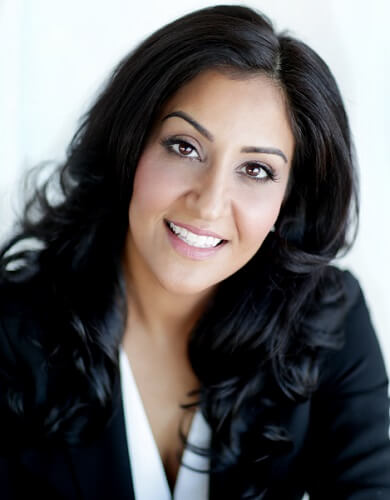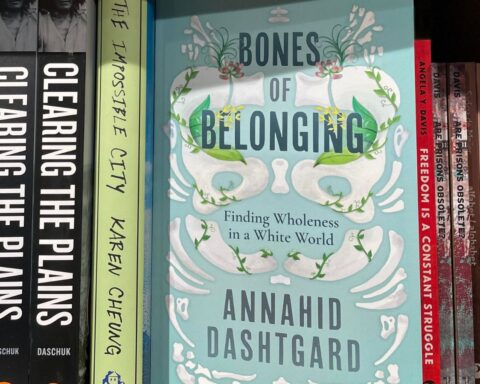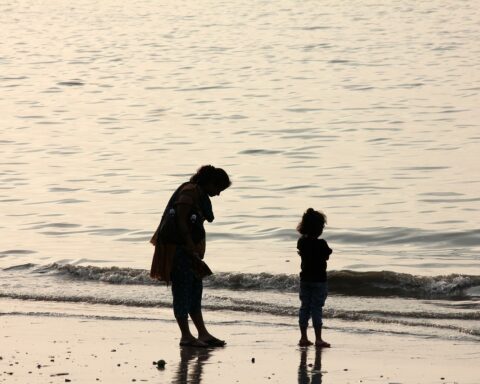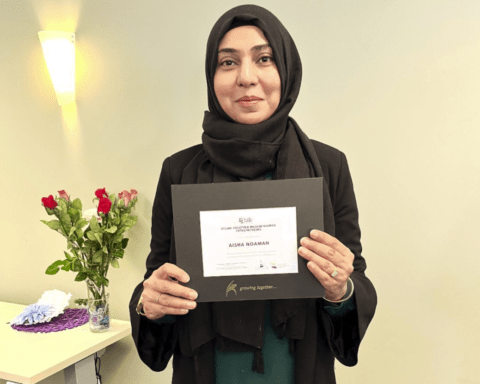The parenting section is a fixture of every Western bookseller’s offerings. Shelves of books are written by those who believe they’ve cracked the ever-elusive code of efficient childrearing, each offering their own solutions to common parenting dilemmas. These texts are attractive to parents who, driven by the fears and uncertainties of parenthood and pressures to produce well-adjusted and successful children, are willing to drop cash to get answers.
Culture-based parenting
A recent trend has been to promote a childrearing philosophy based on specific cultural beliefs and practices, positioning them as superior to others in the process. Amy Chua’s 2011 parenting memoir, Battle Hymn of the Tiger Mother, revealed the strict and demanding parenting style she claims to have drawn from her Chinese heritage. The following year brought us Bringing Up Bébé, another culturally inspired ‘momoir,’ this time by Pamela Druckerman, an American expatriate living in Paris who claimed to have uncovered the mystery surrounding the ease with which the French appear to parent. Both authors have appeared in mainstream media, including The Today Show, Time, Huffington Post, and The Wall Street Journal, and both books made USA Today’s Best Selling Books list. Clearly, North American parents are interested in what other cultures have to offer in the way of parenting wisdom.
 Chua’s tiger parenting tactics were the more controversial. While tiger parents believe their methods produce high-achieving children, critics find them controlling, demanding, and intimidating. Dr. Shimi Kang, a child and adult psychiatrist with expertise in human motivation, wrote The Dolphin Way to explore why tiger parenting is problematic and offer an alternative that stresses the benefits of holistic living. For Kang, this authoritarian style of parenting (which, she stresses, is not limited to a specific ethnicity, but can be adopted by any parent) is practiced out of love, but results in an unbalanced lifestyle. Consequently, individuals are at risk of poor physical and emotional health, and may have difficulty adapting, coping, and socializing. Kang also introduces the tiger’s polar opposite: the permissive parent, or the ‘jellyfish.’ Jellyfish parents do not enforce rules or discipline, and offer minimal guidance, thus creating imbalance in a different manner. Children of jellyfish parents are impulsive, have poor relationships, and tend to float through life. According to Kang, neither parenting style allows children to develop self-motivation or adaptability, and both threaten to prevent children from fully engaging with the world around them.
Chua’s tiger parenting tactics were the more controversial. While tiger parents believe their methods produce high-achieving children, critics find them controlling, demanding, and intimidating. Dr. Shimi Kang, a child and adult psychiatrist with expertise in human motivation, wrote The Dolphin Way to explore why tiger parenting is problematic and offer an alternative that stresses the benefits of holistic living. For Kang, this authoritarian style of parenting (which, she stresses, is not limited to a specific ethnicity, but can be adopted by any parent) is practiced out of love, but results in an unbalanced lifestyle. Consequently, individuals are at risk of poor physical and emotional health, and may have difficulty adapting, coping, and socializing. Kang also introduces the tiger’s polar opposite: the permissive parent, or the ‘jellyfish.’ Jellyfish parents do not enforce rules or discipline, and offer minimal guidance, thus creating imbalance in a different manner. Children of jellyfish parents are impulsive, have poor relationships, and tend to float through life. According to Kang, neither parenting style allows children to develop self-motivation or adaptability, and both threaten to prevent children from fully engaging with the world around them.
Balanced approach
In light of this, Kang proposes that maintaining balance in all aspects of life is the foundation for happiness, health, and success. When we do something good for our survival — allowing ourselves to play, participating in our community, and taking care of our health — our bodies naturally make us feel good through the release of dopamine. In the process, we develop traits that contribute to our overall welfare: creativity, critical thinking, communication, and collaboration. This practice ultimately drives our motivation. When we reach a state of well-being, we are driven to act in a way to achieve this feeling again. When parents guide their children to attain a balanced life in a firm but amenable manner, and model a balanced life themselves, they allow their children to develop self-motivation.
For Kang, the dolphin represents balanced living and parenting. Dolphins naturally guide their kin to pursue activities that enable creativity, critical thinking, communication, and collaboration, and Kang asserts that human parents should do the same for their children. She demonstrates how The Dolphin Way is that of authoritative parenting, a style that sees the parent as the definitive authority figure, one who is assertive, supportive, and communicative. Through their efforts, authoritative parents raise capable and joyful offspring equipped to take on the world.
Kang takes readers through a four-part model of behavioural change as a means to guide them toward better balance. The key to Kang’s approach is that trusting one’s intuition is vital in order to flourish. It is human nature to pursue balance (just like the dolphin!), and to parent well, Kang says, is to listen to one’s gut. Using scientific research and stories from her own and her patients’ experiences, Kang demonstrates how to use instincts to foster balance, the rewards garnered when we do, and the consequences when we don’t.
Kang proposes that maintaining balance in all aspects of life is the foundation for happiness, health, and success. When we do something good for our survival — allowing ourselves to play, participating in our community, and taking care of our health — our bodies naturally make us feel good through the release of dopamine
What makes Kang’s work particularly effective is that she builds an environment for parents to learn and grow. Speaking from professional and personal experience, Kang’s voice is knowledgeable and makes her a suitable guide for this transformative journey. What’s more, the space her words create is an inviting one. By revealing herself as a recovering tiger and recognizing that tiger parents want to do best by their children in a highly connected and competitive world, Kang does not inflict blame or guilt upon the reader. Instead, she writes from a place of understanding and is continuously encouraging. While the scientific and medical concepts Kang presents may appear daunting, she is able to explore these ideas in a way that is relatable and easy to understand. Her recommendations are relevant, practical, and flexible, allowing them to be adapted to one’s personal family dynamics.
Ultimately, in revealing the importance of trusting our innate inclinations, The Dolphin Way encourages readers to think critically about what it takes for humans to attain success in this world. As Kang reminds us, we are wired to seek out balance, and we become joyful and motivated when we do so, but societal stresses make this difficult. By emphasizing the human, Kang presents a fine case for how, by following our intuition, we can lead more fulfilled lives and help our children to do the same — all without fetishizing or generalizing about a particular culture or suggesting cultural superiority.
Amanda Piché is a recent graduate of Ryerson University’s Master’s program in Communication and Culture who plans to pursue doctoral studies. She is interested in examining the role of media in facilitating social movements, and in exploring issues of gender and sexuality as they manifest in popular culture.




